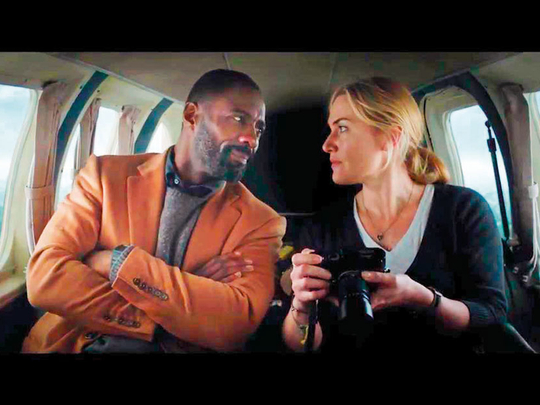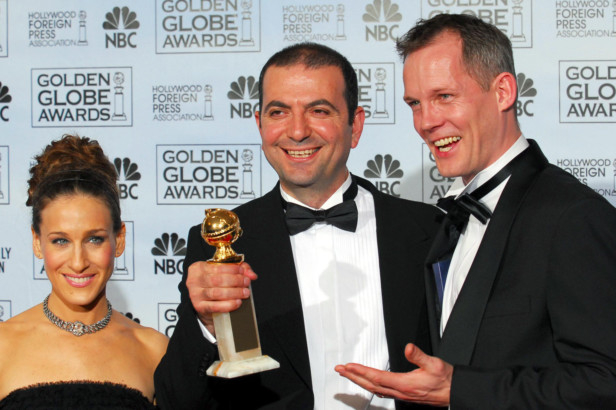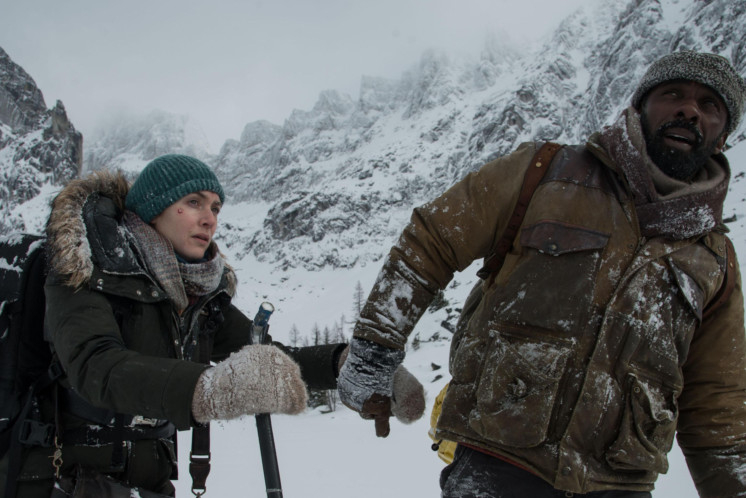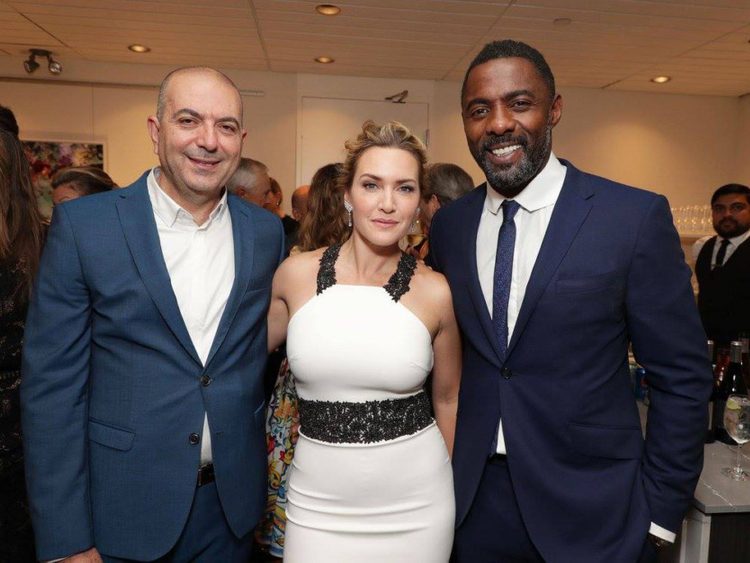
Hany Abu Assad, behind survival flick The Mountain Between Us, releasing in the UAE on Thursday, has built his empire by putting Palestine on the map.
Born in Nazareth in 1961 before immigrating to the Netherlands at age 19, the 56-year-old director has become known for hyperlocal and deeply specific storytelling set in his home country. His films are independent, courageous and heart-wrenching. They know how to cross borders — enough to be recognised by an international audience at the highest level.
His first brush-in with the award circuit was with Paradise Now. The evocative 2005 feature about two Palestinian men preparing for a suicide attack earned him a Golden Globe award and his first Oscar nomination in the Best Foreign Film category. His second Oscar nomination came in 2013 with Omar, about a Palestinian freedom fighter who finds himself in hot water after an Israeli soldier is killed.
The Mountain Between Us belongs to another world. It isn’t being touted as an Oscar contender, but it’s Abu Assad’s biggest and most foreign film yet. The Hollywood epic tells the story of Dr Ben Bass (Idris Elba) and photojournalist Alex Martin (Kate Winslet), who find themselves fighting for their life — and developing a special bond — when their plane crashes on a remote mountain.
Backed by 20th Century Fox, it’s Abu Assad’s biggest budget project to date.
“For the first time, I felt like I was a director,” Abu Assad told Gulf News tabloid!, speaking over the phone from Cairo this week.
“In previous films, all kinds of issues would come to me to solve. The locations, the permits, dealing with [Israeli] occupying forces. On this film, for the first time, there was a whole team who dealt with any problems that came up. All I had to do was overlook the film and the actors. I understood what it felt like to be a director.”
ONE BIG FAMILY
The script, adapted from an eponymous novel, landed on Abu Assad’s desk by way of producer Peter Chernin (New Girl, War for the Planet of the Apes) three years ago. The challenge of mixing survival and romance drew him in.
“Survival has a different dramatic structure to a love story. I liked that we could create striking scenes, because the mountains are like an empty canvas that you can fill with the colours of your actors,” said Abu Assad.
An unlikely romance plays out against the snowy highlands of British Columbia — far from the terrain Abu Assad had become accustomed to. They had to shoot in the middle of a brutal Canadian winter on some of the most isolated locations that its westernmost province had to offer.
“We were far away from civilisation. We could only get to a lot of the places on a helicopter — you’d have to transport your equipment and your crew, which is difficult and expensive. Any person could get lost or fall into the ice and it was extremely, extremely cold. Even the cameras would stop working sometimes,” said Abu Assad.
But the director had no misgivings about how ambitious a film of this scale would be. Personal comfort was something to be sacrificed — a fact his star leads understood as well as he did.
According to Abu Assad, Winslet and Elba became virtually indistinguishable from the crew, which was a rare and beautiful sight.
“There’s usually a hierarchy on a film set — the director, the actors, the department heads and then the rest of the crew,” he said.
“But in a film like this where there’s extreme conditions, everyone comes together. We’re all in danger. You’ll find the actor [behaving] as if he’s one of the crew, sitting down on the ice to eat,” he added.
Neither Winslet nor Elba are strangers to grim backdrops after all. Titanic, a record-breaking romantic disaster film that launched Winslet’s career, saw its protagonist fighting for life (and love) inside of the freezing cold ocean on a lonely, unhinged door. Elba’s filmography dabbles heavily in quick-paced adventure epics — Pacific Rim, The Dark Tower and Star Trek Beyond.
Watching the two actors work was a treat in itself for Abu Assad; Winslet, for instance, wanted her character to be worked out to a T, right down to what she would carry around in her purse. Never mind that the audience would be never-the-wiser.
Coming from an independent background himself, Abu Assad had to adjust to the limitations and opportunities presented by a big budget movie. On set, he had complete creative control, but he still had to accept the fact that studio sign-offs were inevitable.
“You have to get used to it. The film is a collaborative effort — a real director, a true director, is someone who can unify all these voices into one. That’s your job. You’re like a conductor. You have to bring together all these different talents and create a harmony,” he said.
ARAB VOICES
The Mountain Between Us first premiered at the Toronto International Film Festival (Tiff) in September, alongside another Hollywood-starrer by an Arabic director: Haifaa Al Mansour, Saudi Arabia’s first female filmmaker, entered Tiff with Mary Shelley, featuring Elle Fanning, Maisie Williams and Douglas Booth.
So why is it that studio executives are reaching out to more and more Arab voices?
“There are some people in Hollywood who are racist against Arabs, but not all of them. There are people who don’t look at the director, or the actor, as Arabic or English or French. They look at the quality,” he said.
“But in the end, I’ll tell you one thing: Hollywood is not a charity organisation. If they see they can make money, they will work with you. If they see you’re going to lose money, even if you’re the biggest artist in the world, they’re less caring about your talent.”
The bottom line? “You need international recognition for actors to agree to work with you. The second that actors are ready to work with you because you make great films, Hollywood will embrace you.”
Ask what the future holds, however, and Abu Assad keeps mum. He likes to play his cards close to his chest.
“We’re in the casino era, so every director has a few numbers they bet on and they don’t know which one will win,” he said, mirth colouring his voice.
“I was very happy [with this experience], and the studio was very happy, and we have a meeting soon to talk about the future.”
___
Don’t miss it
The Mountain Between Us releases in the UAE on November 30.
















